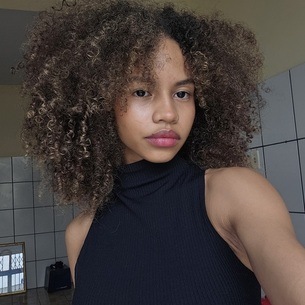UFRGS FIS LIT ING ESP 2018
The complex linguistic universe of Game of Thrones
Game of Thrones has garnered 38 Emmy
awards for its portrayal of a world of sex,
violence and politics so real that some viewers
could imagine moving there. Part of that detail
[5] has been the creation of the richest linguistic
universe since J.R.R. Tolkien’s Middle Earth.
In the field of language-creation for fictional
worlds, there is Tolkien, and there is everybody
else. But David Peterson, the language-smith
[10] of Game of Thrones, comes a close second for
the amount of thought put into its two
languages, Dothraki and Valyrian. The interest
in these tongues is such that a textbook for
learning Dothraki has been published, while
[15] Duolingo, a popular online language-learning
platform, now offers a course in High Valyrian.
Inspired by fictional languages such as those
in the Star Wars films and with a master’s
degree in linguistics, Peterson made Dothraki
[20] and Valyrian as rich and realistic as possible.
Creating words is the easy part; anyone can
string together nonsense syllables. But
Peterson, like Tolkien, took the trouble to give
his words etymologies and cousins, so that
[25] the word for “feud” is related to the words
“blood” and “fight”. To make the languages
pronounceable but clearly foreign, he put
non-English sounds in high-frequency words
(like khaleesi, or queen), put the stress in
[30] typically non-English places, and had words
begin with combinations of sounds that are
impossible in English, like hr.
Armed with a knowledge of common linguistic
sound changes, he gives his languages the
[35] kinds of irregularities and disorder that arise in
the real world: High Valyrian’s obar
(“curve”) becomes Astapori Valyrian’s uvor.
Words’ meanings—as in real life—drift, too,
giving the system more realistic messiness.
[40] Languages also play a prominent role in the
storyline. Dothraki is the guttural language of
a horse-borne warrior nation, but high-born
Daenerys Targaryen does not look down on it;
methodically learning it is key to her rise.
[45] Tyrion Lannister is left to administer the city
of Mereen despite his ropy command of
Valyrian, leading to some comic moments.
And a prophecy of a future hero acquires new
meaning when an interpreter explains that the
[50] word in question is ambiguous in Valyrian—it
could be “prince” or “princess”.
It might seem odd that a highly sexist society
like the one of Game of Thrones would have
languages where sex roles were not clearly
[55] marked, but languages are not always perfect
vehicles for a culture. Random change can
leave them with too many words for one
concept, and not enough for another. In this
way, the flawed nature of language reflects
[60] the foibles of flawed humans and the
imperfect worlds they strive to create.
Adaptado de: . Acesso em: 21 nov. 2017.
Considere as possibilidades de reescrita do segmento Inspired by fictional languages such as those in the Star Wars films, Peterson made Dothraki and Valyrian as rich and realistic as possible.
I - Peterson, inspired by fictional languages such as those in the Star Wars films, made Dothraki and Valyrian as rich and realistic as possible.
II - Being as rich and realistic as possible, Peterson made Dothraki and Valyrian inspired by fictional languages such as those in the Star Wars films.
III- Fictional languages in the Star Wars films inspired Peterson to make Dothraki and Valyrian as rich and realistic as possible.
Quais poderiam substituir o segmento destacado, sem prejuízo do sentido original e da correção gramatical?
Apenas I.
Apenas II.
Apenas III.
Apenas I e II.
I, II e III.
E mais: nota TRI a todo o momento.





